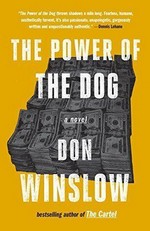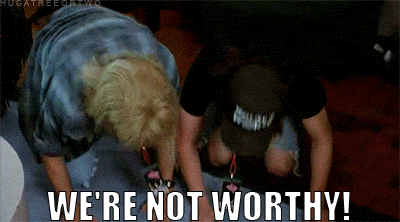 The Power of the Dog
The Power of the Dog
by Don Winslow
Series: The Power of the Dog, #1
Paperback, 542 pg.
Vintage Crime/Black Lizard, 2005
Read: December 29, 2018 – January 8, 2019

| The Americans take a product that literally grows on trees and turn it into a valuable commodity. Without them, cocaine and marijuana would be like oranges, and instead of making billions smuggling it, I’d be making pennies doing stoop labor in some California field, picking it.
And the truly funny irony is that Keller is himself another product because I make millions selling protection against him, charging the independent contractors who want to move their product through La Plaza thousands of dollars for the use of our cops, soldiers, Customs agents, Coast guard, surveillance equipment, communications . . . This is what Mexican cops appreciate that American cops don’t. We are partners, mi hermano Arturo, in the same enterprise. Comrades in the War on Drugs. We could not exist without each other. |
You ever start a book and within a few chapters you know, you just know — the way you know about a good melon — that this is going to be a great book? Not just a good book, an entertaining book, a rave-worthy book, but a great one? Sure, it doesn’t happen often enough, but we’ve all been there. It’s happened almost every time I’ve read a Winslow book, I have to say.
Yet there are eleven books by Winslow that I haven’t read yet. Explain that to me, please.
It’s hard to say exactly when it was that I realized that with The Power of the Dog but it happened — and it took me by surprise for a half of a second, and then the voice in the back of my head said, “Of course.” The scope, the style, the voice, the audacity of the novel — there’s no easy way to describe it. And now I have to try to talk about it? I do super-hero novels, stories about detectives who use magic — or hunt for rare vinyl LPs, teenagers post videos of their drunken parents on Youtube or Picture Books about Die Hard — I posted about (and loved) 2 completely unrelated Crime-Solving Comic Book Artists last year! How am I supposed to talk about this?

After a quick — and disturbing — look at the cost of the War on Drugs in 1997, Winslow takes us back to 1975 in the State of Sinaloa, Mexico. There we meet new DEA agent Art Keller — a Vietnam vet, who’s come to use his experience to help take on the Opium trade. Thanks in large part to those efforts, the Opium trade is devastated — but the industry shifts to cocaine, and well — things go from bad to worse.
We follow Art’s career from 1975 to 2004 — watching him try to stop the flow of drugs from Mexico into the U.S. Calling that a Quixotic effort seems to be an understatement at best — but one particular cartel has made things personal for him and he directs most (if not all) of his efforts — you could argue most of his life — at disrupting their business and, hopefully, dismantling it. It’s no small task, and no quick battle.
But this isn’t just Art’s story — he disappears from the focus several times, in fact. It’s also the story of a maverick Mexican priest as he struggles to minister to various drug dealers, their family members — and their victims. We get to know some members of the Federación very well (too well, in some cases). Also, because the Federación needs customers, we meet several, ahem, NYC-based importers. Connected to all of the above is a high-class prostitute. We see these characters moving through actual history — Iran-Contra, the Mexico City Earthquake, political shifts in Washington. It was striking reading this in 2018/2019, remembering that once upon a time the name “Giuliani” was an invocation of law and order — a name that symbolized a change in organized crime’s power (at least perceived). Watching these individual’s stories weave in and out of each other’s over the decades and over huge geographic areas moves this from an intricate crime story to an epic.
None of these criminals is wholly evil (well, you could make the case for a couple of them, maybe), there are very relatable moments for just about all of them. They love, they laugh, they nurture their kids — they do good things in their community. The same can be said for the law enforcement characters — they aren’t wholly good, in fact, some of what they do is downright despicable. All of them, in short, are very human.
Winslow’s skilled at weaving in seemingly disparate tales into this tapestry and eventually you can see enough of it to appreciate why they’re all there. There are scenes in this book that are among the most depraved I’ve read. Scenes of torture, scenes of murder, scenes of heartbreak. But they’re not written for thrills, they’re not exploitative — they’re just horrific, and very likely based on something that actually happened. There’s a sweet little love story, tucked away in the middle somewhere that I kept wondering why we were getting. It was hundreds of pages, really, before I learned why — I enjoyed it while I could.
There is within this book a very heavy critique on the so-called War on Drugs in the U.S. — at the very least, on the way it’s being waged. Sometimes this comes from the narration, sometimes from a narcotraficante (see the opening quotation), sometimes from DEA agent — it doesn’t really matter whose mouth the critique comes from, it’s biting and it’s typically on point. It will likely make many people uncomfortable — by design; it should make many people upset. But Winslow never browbeats you with these critiques — unless you take the entire book as one, which it very arguably is.
I don’t know if I have the ability to describe Winslow’s writing here. Despite the scope and intricacy of the plot, it’s not a difficult read. Despite the horrors depicted, it’s not overwhelming. In fact, there are moments of happiness and some pretty clever lines. Which is not to say there’s a light-hand, or that he ever treats this as anything but life-and-death seriousness. It’s not an easy, breezy read — but it’s very approachable. I don’t know if there’s a moment that reads as fiction, either — if this was revealed to be non-fiction, I would believe it without difficulty. I will not say that he transcends his genre to be “Literature,” or that he elevates his work or anything — but I can say that Winslow demonstrates the inanity of pushing Crime Fiction into some shadowy corner as not worthy of the attention of “serious” readers.
I think I’ve pretty much covered everything on my pared-down outline. I really want to keep going, but I can’t imagine that many have read this far. As it is, this is at best, an inadequate job describing the book and how wonderfully constructed and written it is. Hopefully, this encourages you to seek more information, or actual reviews about it. Really, The Power of the Dog is a tremendous book and should be read by many. Be one of those.
—–



Ola G
Sounds like a great read, and so goes to my TBR! Thanks!
Thanks!
HCNewton
Just so you know, there’s a sequel the came out a year or two ago (The Cartel) and vol 3 coming out in Feb. Keep some room set aside on the TBR
Ola G
Oh well, my TBR is quite nebulous, so if I ever forget about it I’ll hopefully be reminded by your consecutive reviews!